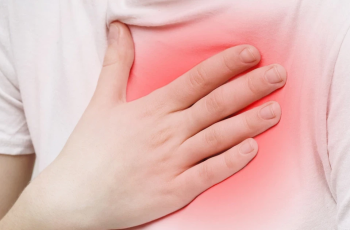Hernias are abnormal bulges caused by the protrusion of an internal organ through connective tissue or muscle. Inguinal hernias occur when part of the intestine bulges out through a weak spot in the abdominal wall. This is usually at the inguinal channel, which is the passageway that runs through the abdominal walls. Inguinal hernias come in two types. Indirect inguinal hernias occur when the opening of the inguinal canal remains open after birth, when it was supposed to have been closed. This malfunction allows the intestine to bulge out through the inguinal tube.
Direct inguinal hernia occurs when part of an individual’s intestine bulges out through a weak spot in the abdominal muscles near the inguinal canal. There are many causes and risk factors for an inguinal hernia. Untreated inguinal hernias can also lead to serious complications.
Increased abdominal pressure

Inguinal hernias can be caused by abdominal pressure. There are many mechanisms that can increase abdominal pressure. Pressure in the abdominal area can be caused by the digestive organs due to excessive gas accumulation in the intestines or an excess of slow-moving, backed-up food. Edema, or the accumulation of fluid or even blood in the abdominal cavity and lining is another less common cause of increased abdominal pressure. Fluid build up on the membranes covering the lungs may also cause an increase in abdominal pressure, as they are located close to the abdominal organs.
An enlarged liver, pancreas or gallbladder can cause pressure to surrounding organs. A severe inflammation or swelling in any of the tissues of the abdominal cavity may cause pressure to build up. If there is significant pressure in the abdominal cavity, the connective tissue and muscles that hold the organs in position can separate or tear. Inguinal hernias are caused by tearing or separating muscles and connective tissues.




